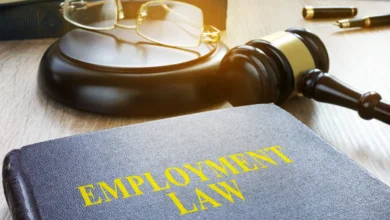Top Government Assistance Programs for Veterans
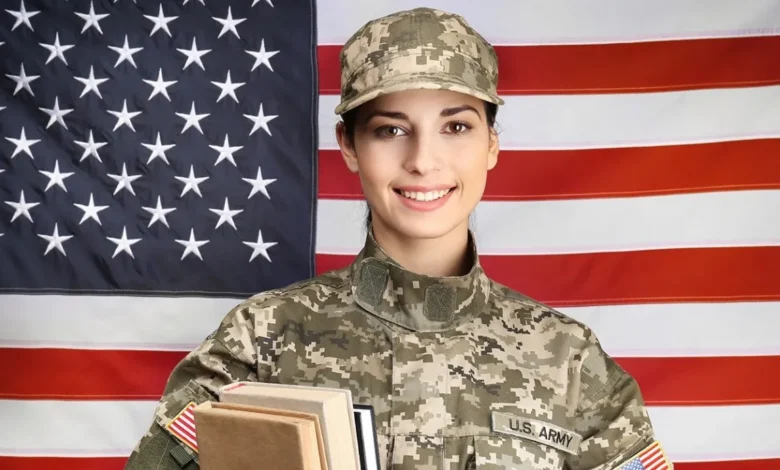
The men and women who have served in the military services have given their all to defend their nations and the ideals they cherish throughout history. Governments all across the globe have created a range of aid programmes to help veterans adjust to civilian life after serving their country. The US Department of Veterans Affairs (VA) is in charge of a wide range of programmes designed to give veterans access to healthcare, financial aid, chances for education and training, and more. In this summary, we’ll look at some of the best government programmes that support veterans, emphasizing the essential help these initiatives assist veterans in thriving after their time in the military.
Contents
· Department of Veterans Affairs (VA):
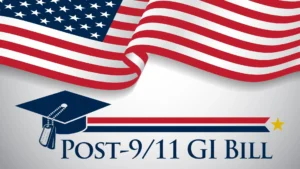
To guarantee that veterans have the assistance and resources necessary to live happy, productive lives after their time in the military, the Department of Veterans Affairs (VA) is essential. The VA was founded in 1930 and is responsible for offering qualifying veterans, their families, and survivors complete healthcare, benefits, and other services. Healthcare is one of the primary services provided by the VA. Veterans can get myriad medical services from the VA, including primary care, specialist care, mental health services, and rehabilitative treatment, through a network of medical centres, clinics, and community-based outpatient facilities. The unique requirements of veterans, especially those with illnesses and disabilities associated with their military service, are frequently catered to in this healthcare.
The VA offers a range of benefits programmes and healthcare to help veterans with other facets of their lives. Veterans with service-connected impairments can get financial support through disability compensation, and qualifying wartime veterans with low income can receive monthly payments from the Veterans Pension Programme.
Through the GI Bill, which gives financial help to veterans pursuing higher education or vocational training, the VA also provides educational aid. In addition, the VA runs programmes to help veterans get life insurance, establish companies, find housing, and access vocational rehabilitation. These programmes are intended to support veterans in readjusting to civilian life and overcoming any obstacles they may encounter. In general, the Department of Veterans Affairs is still dedicated to fulfilling its mandate of respecting the service and sacrifice of veterans by providing them with the support and resources they need to thrive in the civilian world. Through its comprehensive array of programs and services, the VA continues to make a meaningful difference in the lives of millions of veterans across the United States.
· VA Healthcare:
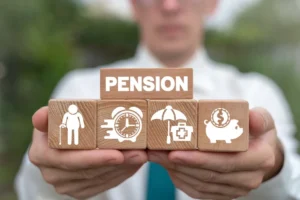
VA healthcare is vital to the nation’s efforts to serve veterans, providing all-encompassing medical treatment designed to meet the unique requirements frequently connected to military service. The Department of Veterans Affairs (VA) guarantees that qualified veterans can access first-rate treatment through an extensive network of clinics, medical centres, and other institutions, regardless of location or circumstances. Providing veterans with a comprehensive spectrum of medical services, including primary care, specialized treatment, mental health services, and rehabilitative care, is at the heart of VA healthcare. This includes acute and chronic ailment treatments, preventative care, and periodic checkups. Crucially, VA healthcare also includes financial aid for veterans created mainly to deal with any physical or mental health issues that they may have faced as a result of their service, including injuries sustained in combat or exposure to traumatic events.
With an emphasis on patient-centered care, the VA’s healthcare system strives to provide prompt, individualized services tailored to each veteran’s unique requirements. This involves ensuring veterans get the treatment they require when and when needed, including enhancing access to care through telemedicine services, mobile clinics, and community-based outreach initiatives. In addition, VA healthcare frequently works with other support services, such as housing aid, social work support, and vocational rehabilitation, to give veterans comprehensive care that attends to their medical and non-medical needs. All things considered, VA healthcare is essential in respecting the duty and sacrifice made by veterans by giving them access to first-rate medical treatment and assistance catered to their particular needs, experiences and circumstances. Through its commitment to excellence and innovation, the VA strives to ensure that veterans receive the care and support they deserve as they transition to civilian life and beyond.
· Disability Compensation:
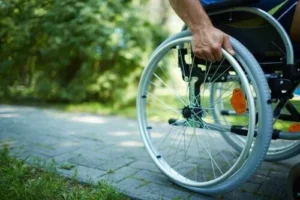
One of the most essential parts of the support system that the Department of Veterans Affairs (VA) offers to veterans who have been injured in combat or have developed medical ailments as a result of their service is disability compensation. With the aid of this programme, veterans with impairments related to their military service may get financial support to lessen the financial burden of their diseases or injuries. The VA classifies impairments as having arisen or worsened during military service if they are determined to be service-connected. These impairments might include everything from physical wounds received during the war to illnesses brought on by exposure to dangerous situations or events while serving.
The severity of a veteran’s service-connected impairments, as assessed by the VA, determines how much disability pay the veteran is entitled to. This assessment considers the severity of the impairment, how it affects the veteran’s capacity to work and carry out everyday tasks, and any other medical requirements that may arise. Disability benefits are typically given out every month and are not subject to taxes. If a veteran has dependents, such as spouses, kids, or dependent parents, they could also be eligible for extra benefits. The VA’s disability compensation programme gives eligible veterans with impairments related to their service access to healthcare treatments via the VA healthcare system and financial aid. By doing this, veterans are guaranteed access to the care and treatment required to manage their disabilities and maintain their overall health and wellbeing.
Disability benefits are essential for helping veterans who have given up their health and wellbeing to serve their nation. The VA ensures that these veterans receive the respect, assistance, and care they are due for their service and sacrifice by offering access to healthcare services and financial aid.
· Veterans Pension Program:

The Department of Veterans Affairs (VA) oversees the Veterans Pension Programme, a government aid programme that pays monthly benefits to qualified veterans of World War II who have low incomes, are 65 years of age or older, or are completely and permanently handicapped. The Veterans Pension Programme is based on financial necessity instead of disability compensation based on service-connected impairments. Veterans must fulfil specific qualifying requirements to be eligible for the Veterans Pension, such as:
Military Service: Veterans must have served at least 90 days of active duty, with at least one day served during wartime. The specific wartime periods recognized by the VA vary depending on the individual’s dates of service.
Income and Net Worth: Veterans must have limited income and net worth, as the VA determines. The VA considers various factors when evaluating a veteran’s financial situation, including income from all sources and assets and expenses.
Disability or Age: Veterans must meet one of the following criteria: they are permanently disabled, not due to their willful misconduct, and the disability is unrelated to their military service. They are age 65 or older.
The maximum yearly pension rate set by Congress is subtracted from the veteran’s countable income to calculate the veteran pension payment amount. All forms of income, including Social Security benefits, retirement income, and other funding sources, are considered countable income. In order to ensure that veterans who have served their nation in times of war and need financial aid have the means to sustain themselves and maintain a respectable quality of life in their later years, the Veterans Pension Programme was established.
· GI Bill:
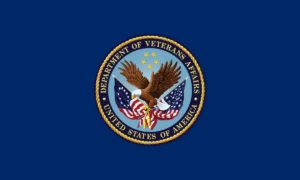
The Servicemen’s Readjustment Act of 1944, or GI Bill, is one of the most important and long-lasting benefit programmes for veterans in the United States. The GI Bill was first approved to help World War II soldiers adjust to civilian life. Since then, it has undergone several expansions and revisions, the most recent being the Post-9/11 GI Bill, to continue aiding veterans and their families. The GI Bill offers education and training benefits for qualified veterans, service members, reservists, and certain dependents to support their pursuit of postsecondary education, vocational training, and other educational possibilities. The GI Bill’s salient characteristics include:
Tuition Assistance: The GI Bill covers a portion or all of the tuition and fees for approved educational programs, including degree programs, vocational training, apprenticeships, and certification courses.
Housing Allowance: Eligible veterans enrolled in full-time education programs may receive a monthly housing allowance to help cover living expenses while attending school. The housing allowance amount is based on the cost of living in the area where the veteran is enrolled in school.
Books and Supplies Stipend: The GI Bill provides a stipend to help offset the cost of books, supplies, and other educational materials required for coursework.
Yellow Ribbon Program: For veterans attending private institutions or out-of-state schools that may have higher tuition costs, the Yellow Ribbon Program allows participating institutions to voluntarily contribute additional funds to cover tuition expenses that exceed the maximum GI Bill benefit.
Transferability: Under certain circumstances, veterans can transfer their unused GI Bill benefits to their spouse or dependent children.
The GI Bill is an invaluable tool for veterans looking to continue their education and increase their employment prospects after leaving the military. Through the GI Bill, veterans may pursue meaningful and fulfilling jobs in various disciplines and transition smoothly into civilian life by receiving financial support for training and education. Furthermore, the GI Bill-funded educational programmes add to the general strength and competitiveness of the American labour force by imparting information and skills.
Conclusion
Recognizing and honouring veterans’ service and sacrifices is primarily made possible by the support offered by government aid programmes such as the GI Bill, disability compensation, the Veterans Pension Programme, and VA healthcare. These programmes are vital in assisting veterans with their transition to civilian life, their access to healthcare services, their pursuit of educational and professional possibilities, and their ability to maintain a respectable quality of life. It is crucial to preserve and enhance these support programmes to guarantee that they continue to be available, efficient, and sensitive to the changing needs of veterans and their families as we acknowledge the priceless contributions that veterans make to our society. By continuing to provide funding and support for these initiatives, we can uphold the memory of our veterans and reaffirm our dedication to helping those who have served us with courage and distinction


